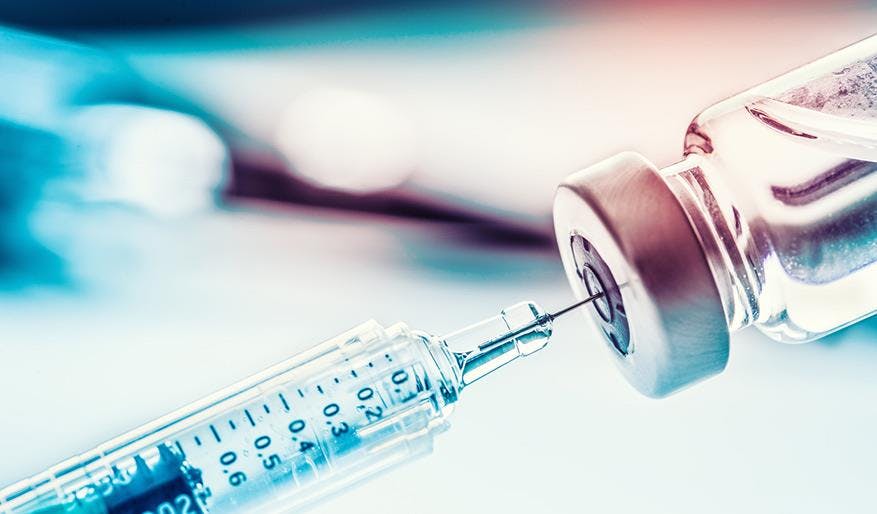The call for an EU Immunisation Strategy
Vaccines as a fundamental tool for sustainable European health systems
Vaccines use the body’s natural defences to build resistance to specific diseases. Immunisation currently saves between three and five million lives globally each year, according to the World Health Organization, and it helped to save more than 1.4 million lives in Europe during the COVID-19 pandemic.
According to the European Commission, vaccination is one of the most cost-effective public health interventions which represent a comparatively small part of EU Member States’ national healthcare budgets given the added value they bring – not only to individuals but to healthcare systems, and society in general.
With the European Union facing multiple global health threats, but also with the ongoing environmental crises, wars, demographic transitions, and shortages of medicines, it is easy to overlook the importance of immunisation. Nonetheless, effective immunisation policies are crucial to improving European public health.
By preventing ill health, they contribute to reducing the burden on healthcare services, save money, and preserve the health and well-being of European citizens over the long-term. Furthermore, they support the fight against antimicrobial resistance (AMR), alleviate some of the challenges linked with the ageing population, and are also being used in the fight against emerging pathogens due to the climate change.
The lost momentum of immunisation in Europe
Despite health and specifically immunisation policies being a national competence, the EU can play a supporting role in coordinating EU countries in implementing their vaccination programmes, ensuring the safety of vaccines, and raising awareness on the importance of immunisation.
Over the past four years, the pandemic brought vaccination to the top of the EU Health Policy agenda, teaching valuable lessons on the role of strong vaccination policies, the value, and the importance of vaccination for the economy and the society, the need to fight vaccine hesitancy, to invest in diverse portfolio of vaccines and to continue to increase pandemic preparedness across the Union.
Capitalising on the spotlight that the recent pandemic had brought on vaccines, in 2022 the Council of the European Union officially adopted its Conclusions on vaccination, reaffirming vaccines as one of the most effective public health tools in the prevention of infectious diseases. The Conclusions focus on increasing vaccine acceptance among European citizens and fostering EU cooperation on vaccination policies. This is crucial as the European Union faces the challenge of increasing vaccine hesitancy, with a growing number of citizens across Member States choosing not to get vaccinated.
To address this issue, the Council called on the Commission to propose new policies to fight misinformation about vaccines, foster health literacy, and ultimately increase trust. At the same time, the Member States highlighted the importance of strengthening EU cooperation to ensure that patients continue to have uninterrupted access to vaccines for routine vaccinations and adequate vaccination strategies to prevent future outbreaks of infectious diseases. What is more, earlier this year the European Commission also presented a proposal for a Council Recommendation on vaccine-preventable cancers, the adoption of which by the Member States is upcoming.
Despite the fact that immunisation is still, at least to some extent, being discussed at the EU level, the momentum for immunisation has shifted immensely to other priorities. In recent months, policymakers’ spotlight has been on other health-related discussions such as the EU General Pharmaceutical Legislation, but also on the ongoing war in Ukraine, and defence-related discussions.
Towards an EU Immunisation Strategy?
Vaccination plans are a national competence and, therefore, a responsibility of the individual EU countries but vaccine hesitancy, an ageing population, cross-border pandemics, and antimicrobial resistance (AMR) are problems that affect the Union as a whole. For this reason, several stakeholders in the European vaccination policy landscape are calling for more EU focus on vaccination.
Some concrete examples include recommendations from March 2024 presented by the Mission Board on Vaccination, the calls from the Coalition for Life-Course Vaccination to establish a specific MEP interest group focusing on vaccinations, as well as the call from Vaccines Europe to set up an EU Immunisation Strategy.
Looking ahead, more EU action on vaccination including a clear and forward-looking EU Immunisation strategy would attract investments to re-establish Europe as a leader in vaccine research, development, and innovation. Furthermore, it would tackle the issue of inequality in access and what comes with it, vaccination coverage rates within and across EU Member States, preventing cross-border health threats.
As Sibilia Quilici from Vaccines Europe stated: “The time to act is now. The EU’s recent initiatives on strengthened cooperation against vaccine-preventable diseases provide a groundwork upon which Europe and its Member States can build stronger immunisation policies. Prioritising and fortifying these policies can pave the way for transparent collaboration among stakeholders, equitable access across Member States, and ultimately, a healthier, more prosperous Europe.”
The European general elections that will take place from 6 – 9 June this year represent a crucial opportunity to bring the focus of EU policymakers back on vaccines, and to turn those ambitions into concrete actions.
Sources
World Health Organization, Health Topics: Vaccines and Immunisation (link)
European Commission, Vaccination Programmes and Health Systems in the European Union, Report of the Expert Panel on effective ways of investing in health (EXPH), 2018 (link)
Council of the European Union, Vaccination: Council calls for combatting vaccine hesitancy and closer EU cooperation, Press Release, December 2022 (link)
Alexandre de Figuereido & Al., State of Vaccine Confidence in the EU, 2022 (link)
Vaccines Europe, EU Immunisation Strategy: From Progress to Excellence, Press Release, March 2024 (link)
Vaccines Europe, Realising the full Value of Vaccination: Budget for prevention in the EU, Toolkit, February 2022 (link)
World Health Organization, COVID-19 vaccinations have saved more than 1.4 million lives in the WHO European Region, Study, January 2024 (link)
